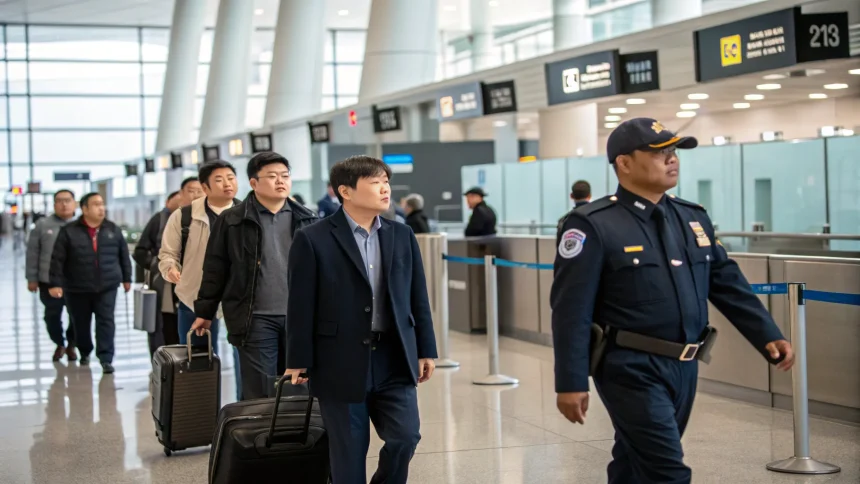Immigration authorities in the United States are finalizing arrangements to deport more than 300 South Korean nationals on a chartered flight from Atlanta. The workers were detained approximately one week ago on allegations of working in the country without proper authorization.
The mass deportation comes after immigration officials conducted what appears to be a large-scale enforcement operation targeting unauthorized workers. The South Koreans were reportedly taken into custody during coordinated actions by federal immigration agents.
Details of the Detention
According to information from U.S. immigration authorities, the workers were detained after investigations revealed they were allegedly employed without proper work visas or permits. The specific industries or locations where these individuals were working has not been disclosed in detail.
The chartered flight represents a significant deportation action, suggesting federal authorities may be increasing enforcement against unauthorized foreign workers. This operation appears to be one of the larger group deportations in recent months.
Legal Framework and Immigration Enforcement
Under U.S. immigration law, foreign nationals must possess appropriate visas that specifically authorize employment in the country. Common work-eligible visas include H-1B for specialty occupations, H-2A for agricultural workers, and H-2B for temporary non-agricultural workers.
Working without proper authorization can lead to:
- Immediate detention and deportation proceedings
- Multi-year bans on returning to the United States
- Permanent immigration consequences for future visa applications
International Relations Impact
The mass deportation of South Korean nationals could have diplomatic implications between the United States and South Korea, who maintain strong economic and security ties. South Korea is considered a key U.S. ally in the Asia-Pacific region.
Immigration experts note that such large-scale deportations typically involve coordination with the home country’s diplomatic missions. The South Korean embassy or consular officials would likely be involved in verifying the identities of those being deported and facilitating their return.
“Mass deportations of this scale require significant logistical planning and diplomatic coordination,” explains an immigration attorney familiar with such cases but not directly involved with this specific situation.
Broader Immigration Context
This deportation action occurs against the backdrop of ongoing debates about immigration enforcement priorities in the United States. The federal government has maintained that it focuses enforcement resources on individuals who pose national security or public safety threats, while also addressing unauthorized employment.
Employers who knowingly hire unauthorized workers can face civil and criminal penalties under U.S. law. It remains unclear whether the employers of these South Korean workers are also facing legal consequences.
Immigration advocates have raised concerns about due process in large-scale enforcement actions, questioning whether detained individuals have adequate access to legal counsel and proper hearings before deportation.
As the chartered flight prepares to depart from Atlanta, this case highlights the complex intersection of immigration enforcement, international relations, and labor market regulations that continue to shape U.S. immigration policy.









